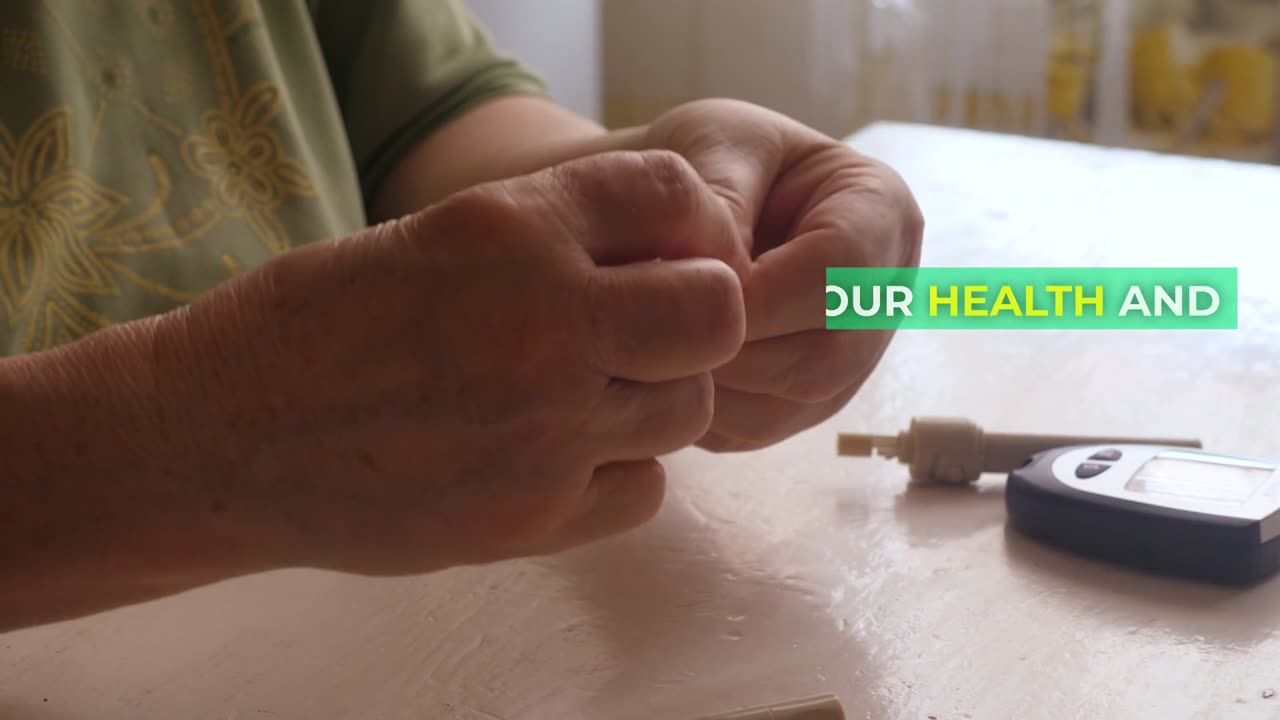Premium Only Content

"Diabetes and Erectile Dysfunction: Insights, Treatments, and Sexual Health Tips"
Men with diabetes are 3x more likely to experience difficulty getting or maintaining an erection. This could be due to factors like restricted blood flow, nerve damage (neuropathy), and damaged blood vessels. Additionally, medication and emotional well-being can also impact erectile function. If diabetes is not well managed, men are at a higher risk of developing erectile dysfunction (ED) or impotence. However, there are various highly effective treatments available. It is crucial to consult your doctor as soon as you notice any changes.
Studies have shown that men with diabetes often have lower testosterone levels, which can affect their sex drive. However, the main sexual health issue for diabetic men is the inability to achieve or sustain an erection, known as ED. Ejaculatory dysfunction is also relatively common, with up to 35%–50% of men with diabetes experiencing it. Although there is still much to learn about its underlying causes and treatment methods, it remains a significant concern for diabetic men.
Diabetes can also affect a man's private parts, causing changes in sexual function or bladder habits. Nerve damage from diabetes, referred to as diabetic neuropathy, can impact various body parts, including the genitals and urinary tract.
If an older man experiences difficulty with erectile function, one common medical treatment is using phosphodiesterase-5 (PDE 5) inhibitors. These drugs help relax and widen blood vessels, resulting in improved blood flow to the penis.
There is a range of available treatments for men with diabetes and erectile dysfunction. Oral medications like avanafil (Stendra), sildenafil (Revatio, Viagra), tadalafil (Adcirca, Cialis), or vardenafil (Levitra, Staxyn) can be prescribed to help achieve and maintain an erection.
Taking ED medication like Viagra does not pose specific risks for men with diabetes, but it's important to be aware of potential side effects such as headaches and muscle/back pain.
Erectile dysfunction does not have a specific age range but becomes more prevalent after the age of 50. However, making efforts to improve overall physical health, prevent weight gain, manage heart disease and diabetes can potentially help maintain erectile function.
If you are dating someone with type 1 diabetes, there are a few tips to keep in mind. First, educate yourself about their condition to better understand and support them. Secondly, be considerate and understanding of their needs. Effective communication is paramount, so ensure you have open and honest conversations. Planning active dates can also benefit both of you. Lastly, patience is key when navigating a relationship with someone who has diabetes.
It is worth noting that diabetes can impact fertility in both men and women. Men with diabetes may have DNA damage in their sperm, while women have a higher risk of miscarriage and birth defects. If you are planning to start a family, it's important to be aware of these potential challenges.
In conclusion, this video titled "Diabetes and Erectile Dysfunction: Insights, Treatments, and Sexual Health Tips" explores the connection between diabetes and the various factors contributing to erectile dysfunction. It provides insights into available treatments and offers essential tips for maintaining sexual health while living with diabetes.
-
 1:24:56
1:24:56
Glenn Greenwald
4 hours agoGlenn Takes Your Questions on Tulsi's Russiagate Revelations, Columbia's $200M Settlement, and More | SYSTEM UPDATE #492
69K22 -
 LIVE
LIVE
Akademiks
1 hour agoICE MAN EPISODE 2 tonight. NEW NBA YOUNGBOY 'MASA' TONIGHT. BIG AKADEMIKS #2 MEDIA PERSONALITY 2025.
2,265 watching -
 1:43:38
1:43:38
LumpyPotatoX2
3 hours agoRumble Creator Round-Table - Let's Talk About It
7.43K2 -
 32:38
32:38
The Mel K Show
5 hours agoMel K & Dr. James Thorp, MD | Sacrifice: The Targeting of the Most Vulnerable | 7-24-25
8.87K4 -
 LIVE
LIVE
Omar Elattar
7 hours agoThe Dating Expert: "I've Helped 4,000 Men Find LOVE!" - The #1 Alpha Trait Women Secretly Crave!
76 watching -
 1:12:41
1:12:41
Donald Trump Jr.
4 hours agoFrom Crypto to AI, There's a New American Energy Revival, Interviews with Asher Genoot & Sen McCormick | TRIGGERED Ep.261
136K49 -
 52:11
52:11
ZeeeMedia
7 hours ago"Meaningful Deep State Prosecution" ft. Robert Barnes | Daily Pulse Ep. 73
18K6 -
 8:10
8:10
MattMorseTV
5 hours ago $1.15 earnedThey just CAVED.
9.03K22 -
 14:55
14:55
Tundra Tactical
4 hours agoTundra's EXPLOSIVE SIG Meme Review
3.2K1 -
 LIVE
LIVE
Joker Effect
2 hours agoThe told me to go to H3LL...... well... I am here and causing chaos now. HORROR GAMEPLAY ONLY! :)
454 watching